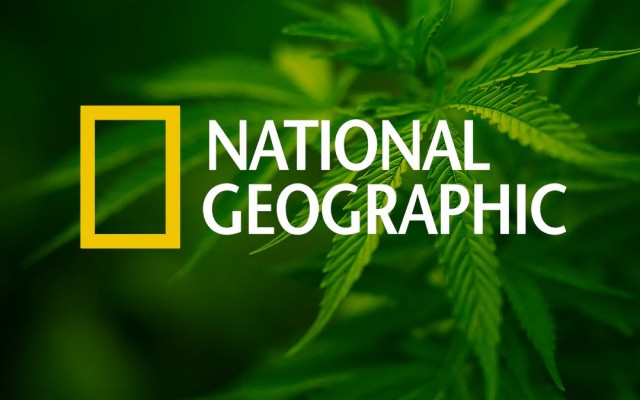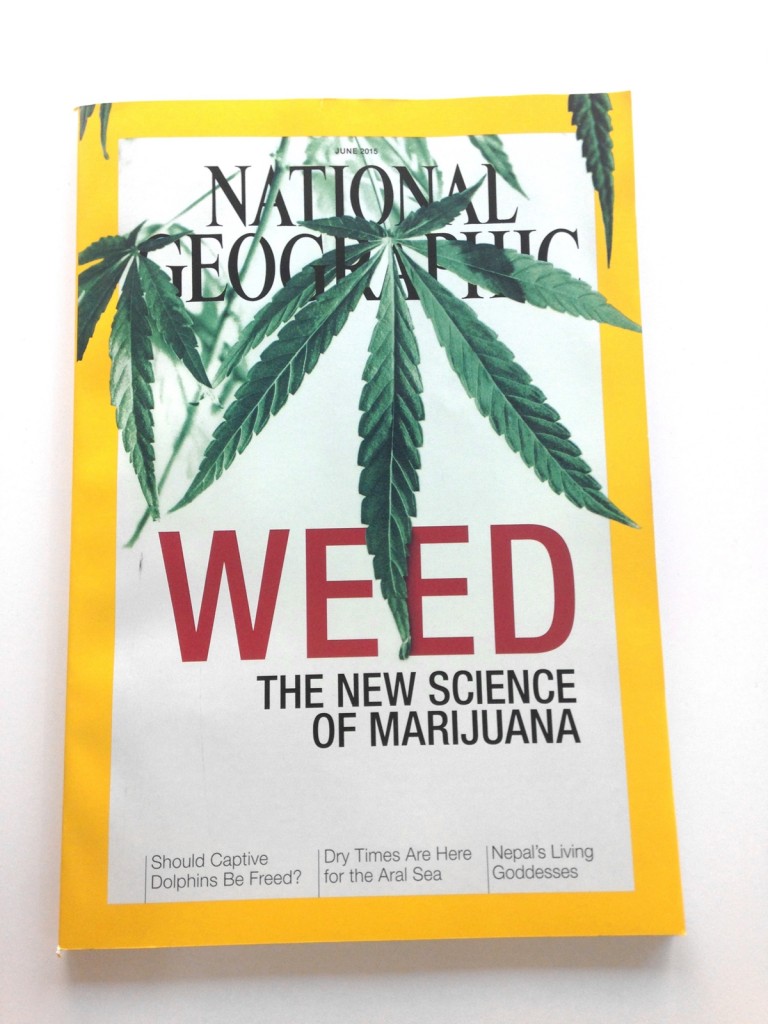 National Geographic took a deep look at the science of weed and even made it the cover story of their most recent issue. When it comes to apolitical science-based journalism, you’d be hard pressed to find a magazine with more integrity and respect than Nat Geo. Cannabis covering such a prestigious media source is a huge milestone for the cannabis movement.
National Geographic took a deep look at the science of weed and even made it the cover story of their most recent issue. When it comes to apolitical science-based journalism, you’d be hard pressed to find a magazine with more integrity and respect than Nat Geo. Cannabis covering such a prestigious media source is a huge milestone for the cannabis movement.
For the article, Nat Geo interviewed several key players in the scientific cannabis world to glean their thoughts about this mysterious plant. What stands out is an intrinsic appreciation shared among these cannabis visionaries. This goes far beyond curiosity or simply fulfilling a job function. These folks are highly educated leaders of their field’s and they all have strong faith that cannabis can play a major role in human wellness.
 Raphael Mechoulam is the Israeli scientist who first discovered THC in the early 1960’s and again flexed his mighty science muscles in the nineties when he went ahead and discovered anadamide as well. Mechoulam mirrors a sentiment of mine — that cannabis, once explored, will hold the keys to relieving many of the maladies that have stricken mankind.
Raphael Mechoulam is the Israeli scientist who first discovered THC in the early 1960’s and again flexed his mighty science muscles in the nineties when he went ahead and discovered anadamide as well. Mechoulam mirrors a sentiment of mine — that cannabis, once explored, will hold the keys to relieving many of the maladies that have stricken mankind.
“We have just scratched the surface,” says Mechoulam, “and I greatly regret that I don’t have another lifetime to devote to this field, for we may well discover that cannabinoids are involved in some way in all human diseases.”
Phillip Hague, a botanist who runs Mindful, one of biggest pot cultivation outfits on earth, has freezers full of rare and ancient cannabis seeds. His is a more bohemian perspective, “We have to recognize that humans evolved with [cannabis] practically since the dawn of time. It’s older than writing. Cannabis use is part of us, and it always has been… It sounds hokey, but I believe cannabis has a consciousness. It’s tired of being persecuted. It’s ready to step out into the light.”
Manuel Guzman, a Spanish professor who has made a name for himself shrinking tumors in mice with cannabis, exhibits cautious optimism regarding cannabis and cancer. While trials in mice have been extremely encouraging, he was careful to mention that humans are not mice and he’s not sure if it will work in humans. But, Guzman does see reason to smile, “We have to be objective. At least the mind-set is opening around the world, and funding agencies now know that cannabis, as a drug, is scientifically serious, therapeutically promising, and clinically relevant.”
The article of course addressed the epileptic children who have benefited from cannabis and their families who have literally moved states to be able to provide their babies with medicine without fear of legal ramification. I also learned that the first evidence of cannabis oil successfully treating child seizures dates all the way back to 1843 in England. One mother commented on the success of her daughter’s cannabis treatment: “It sounds like a small thing, but if you have a child who smiles for the first time in many, many months, well, your whole world changes.”
 Critics of giving CBD oil to kids gripe that parents are using their kids as guinea pigs with untested CBD oils and that most of these success stories can be written off on the placebo effect. To that I say hogwash. For a placebo effect to hold clout, the patient has to think they are taking something that would cure them. Most of these kids who use CBD oil are still toddlers and don’t really have the wherewithal to know they are using cannabis. How could they then have an expectation that could psychosomatically be met?
Critics of giving CBD oil to kids gripe that parents are using their kids as guinea pigs with untested CBD oils and that most of these success stories can be written off on the placebo effect. To that I say hogwash. For a placebo effect to hold clout, the patient has to think they are taking something that would cure them. Most of these kids who use CBD oil are still toddlers and don’t really have the wherewithal to know they are using cannabis. How could they then have an expectation that could psychosomatically be met?
While these people are quick to decry cannabis oil as a treatment, the same mother pointed out that no one questions the safety of the pharmaceuticals that kept the child comatose. “Our insurance pays for it, no questions asked. But it’s highly addictive, highly toxic, turns you into a zombie, and can actually kill you. And yet it’s perfectly legal.”
Nolan Kane, geneticist for University of Colorado, Boulder, is hoping to map the entire cannabis genome (some 800 million nucleotides). Kane purports that while most scientific advancement comes incrementally, with cannabis, there is potential for a “transformation” of science. As Kane puts it, unlocking cannabis could prove “transformative not just in our understanding of the plant but also of ourselves—our brains, our neurology, our psychology. Transformative in terms of the biochemistry of its compounds. Transformative in terms of its impact across several different industries, including medicine, agriculture, and biofuels…[Cannabis could provide] an embarrassment of riches.”
Don’t look now, but, to me, this is clear evidence that cannabis is on the verge of taking the world over in the most amazing ways. I’m beaming with excitement while awaiting the new cannabis wonders that will be unraveled.









